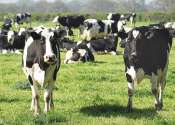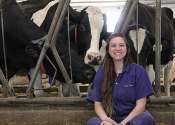New study confirms mammal-to-mammal avian flu spread
A new study provides evidence that a spillover of avian influenza from birds to dairy cattle across several U.S. states has now led to mammal-to-mammal transmission—between cows and from cows to cats and a raccoon.









